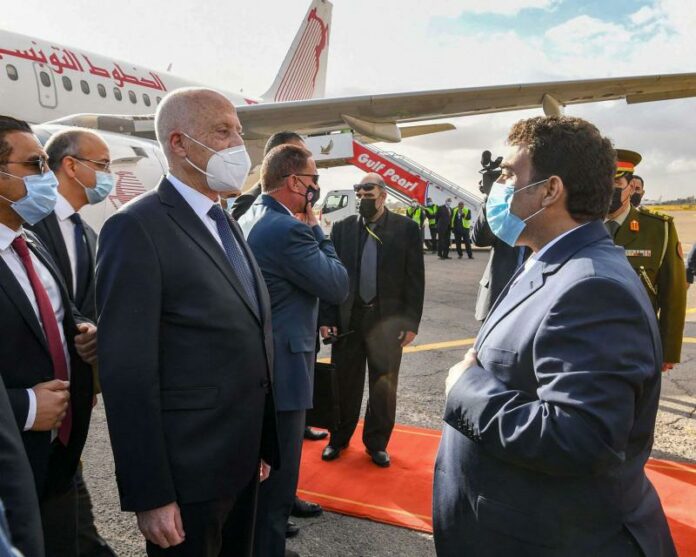While Arab and Western countries are flocking to Libya in order to strengthen its position on the map of the forces looking for footholds in the reconstruction process, following the election of a new executive authority for the country, Tunisia has been taking modest steps in this direction, until a controversial statement came from the former official spokesperson for the Ministry of the Interior to anger the Libyans, forcing the Ministry of Foreign Affairs to clarify and deny.
To what extent could the “violent” media statements of a number of Tunisian officials affect the investment operations between the two countries?
A History of ‘Weird’ Pronouncements
The statement of the former spokesperson for the Tunisian Ministry of the Interior, Hisham Al-Meddeb, through which he called for closing the borders with Libya in the absence of Tunisia’s access to economic projects, was not the first statement that angered Libyans during the past years and with the changing governments and political situations in the two countries, “diplomatic jokes” were repeated, which angered the Libyans.
A few months ago, statements by the President of the Republic, the main official responsible for diplomacy, Qais Saied, sparked widespread anger and reactions inside Libya, especially with regard to the country’s constitution, amid questions about the significance of these statements, and whether Saied had changed his orientation in Libya or was distant from understanding the situation inside the country.
During his visit to France and meeting with its president, Saied said that “the Libyans must draw up a temporary constitution, similar to the constitution that was drawn up in Afghanistan in 2020”, seeing that “international legitimacy in Libya is temporary and will not last,” stressing that “Tunisia is one of the countries most affected by what is happening in Lybia”.
The ministers also had a share of controversial statements. In 2017, Libyan organizations and associations expressed their disapproval and condemnation of the statement of the former Minister of Local Affairs and Environment, Riad Al-Mouakhar, during a seminar in Italy, in which he said, “Tunisia is a country located under Rome because Libya seems to some extent a terrorist country.”
According to this statement, Tunisia faced accusations from the National Committee for Human Rights in Libya of “trying to transfer the threat of Tunisian terrorists to Libya and exposing Libyan security and stability to the threat of terrorism, and conveying to the world that the threat of terrorism and extremism to which Tunisia is exposed is coming from Libya and hence exploiting the momentum and international efforts aimed at combating terrorism in order for the Tunisian authorities to achieve material, political and military gains and benefits at the expense of Libya,” according to the text of the communiqué.
The Effect is there!
Former diplomat Ahmed Ounais explained to “JDD” on Sunday, March 14, 2021, that it is obvious that the statements of political officials and actors in the economic, security and civil arenas will affect relations between neighbors.
He added that the high officials must speak to clarify, after the statements that provoke the anger of one of the two peoples, and to put emphasis on the depth of relations and the insistence on preserving them, which leads to the purification of the effects of such statements, as he put it.
Regarding the diplomatic efforts related to Tunisia’s share of the reconstruction process, Ounais revealed that a meeting was held in Sfax on Thursday 11 March 2021 for the Cooperation Club between Tunisia and Libya, with the presence of dozens of actors from both sides, and its results were extremely successful, as he put it.
Our interlocutor said, “We have high confidence in the parties we deal with, directly and indirectly, in mutual investment operations between the two countries as well as with regard to labor,” and he added, “we do not need lobbying, public statements, or protests. As soon as peace and security are restored in Libya, relations will return with the same strength,” according to his assertion.








